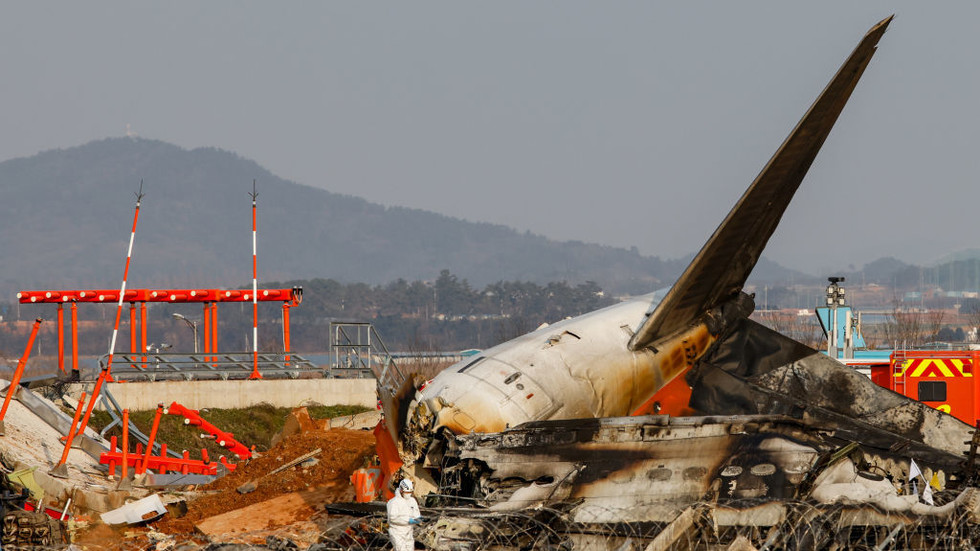737-800 jets such as the Jeju Air flight that crashed on Sunday are used by most of the country’s budget carriers
South Korea’s Ministry of Land, Infrastructure and Transport is set to conduct a special inspection of all Boeing 737-800 jets operated by the country’s air carriers, Yonhap news agency reported on Monday.
The move comes a day after a Jeju Air Boeing 737-800 carrying 181 people from Bangkok belly-landed, skidded off the runway and exploded after slamming into a wall at Muan International Airport, some 290km southwest of Seoul.
The cause of the tragedy that has claimed the lives of 179 people is currently under investigation, with preliminary findings pointing to a landing gear malfunction. Two crew members survived and are being treated for injuries.
Boeing 737-800s are mostly operated by low-cost domestic airlines. Jeju Air currently has 39 of the planes in its fleet, while 62 are operated by T’way Air, Jin Air, Eastar Jet, Air Incheon, and Korean Air.
On Monday, local media reported that another Boeing 737-800 operated by Jeju Air had returned to an airport in South Korea shortly after departure due to the same landing gear issue.
Earlier, South Korea’s acting President Choi Sang-mok ordered an emergency safety inspection of the country’s entire airline operation system “to prevent recurrence of aircraft accidents.”
“Even before the final results are out, we ask that officials transparently disclose the accident investigation process and promptly inform the bereaved families,” Choi said, explaining that the top priority was to identify the victims, support their families, and treat the two survivors.
Local media outlets had previously reported that the authorities believed that the airliner had been hit by a flock of birds, which caused its landing gear to malfunction. However, aviation experts questioned this theory in an interview with Reuters.
You can share this story on social media:
Read the full article here

